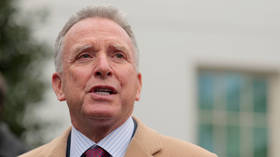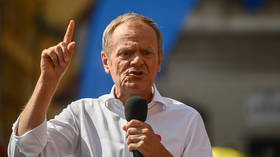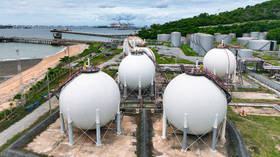German inflation accelerates

Germany’s inflation rate rose 8.7% on the year in January and 1.0% on the month, the Federal Statistical Office (Destatis) said in a press release on Thursday.
According to the preliminary data, consumer prices, harmonized to compare with other European Union countries, rose by a less-than-anticipated 9.2% year-on-year. Compared with December, prices increased by 0.5%, Destatis said.
Analysts had expected harmonized data to grow by 10.0% on an annual basis and increase by 1.2% on the previous month, according to Reuters.
“Because core inflation will remain high in 2023, a fundamental easing of inflation is not in sight,” chief economist at Hauck Aufhaeuser Lampe Privatbank, Alexander Krueger, told the media outlet.
The EU’s largest economy suffered from record inflation last year due to a surge in energy prices brought about by a drop in gas deliveries from Russia amid Ukraine-related sanctions. Issues with pipeline maintenance and then the sabotage of the Nord Stream pipelines further exacerbated the tight supplies. Last month, Economy Minister Robert Habeck said the German economy would avoid a sharp decline but is set to enter a technical recession.
For more stories on economy & finance visit RT's business section













